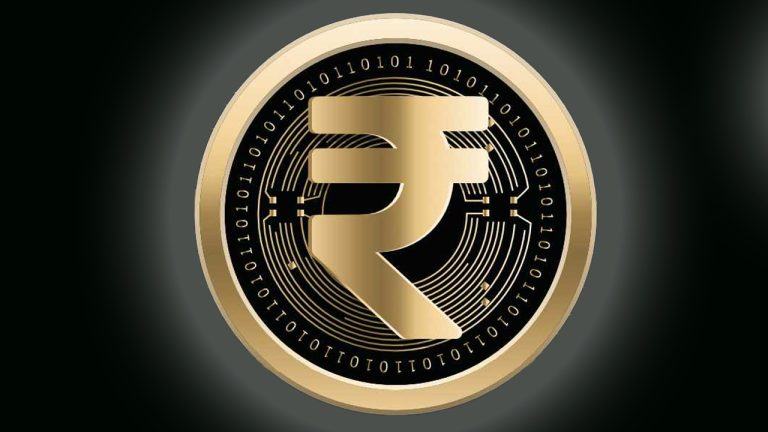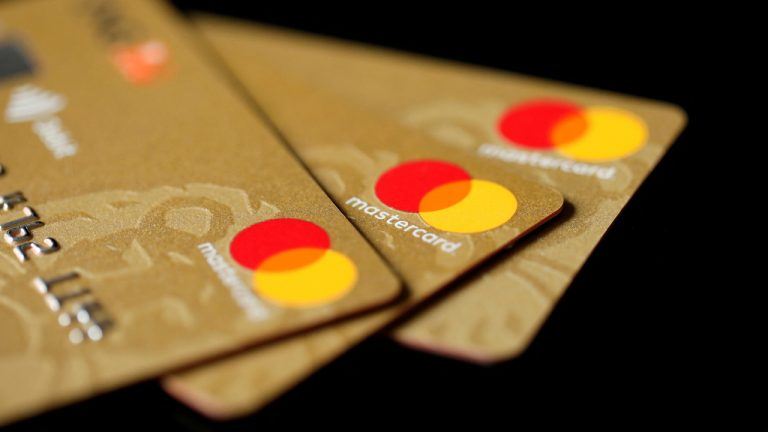 The crypto exchange Bybit has introduced a digital rupee (eRupee) as a new payment method for Indian rupee transactions. The launch aims to provide a secure alternative for INR users on its platform. Bybit Aims to Enhance INR Payments With Launch of Digital Rupee Bybit, a digital currency trading platform, announced the introduction of the […]
The crypto exchange Bybit has introduced a digital rupee (eRupee) as a new payment method for Indian rupee transactions. The launch aims to provide a secure alternative for INR users on its platform. Bybit Aims to Enhance INR Payments With Launch of Digital Rupee Bybit, a digital currency trading platform, announced the introduction of the […] Financial giant Mastercard has initiated its first real-world application of the Crypto Credential system, a system aimed at facilitating easier and more secure peer-to-peer (P2P) cryptocurrency transactions. The service, which allows users to transfer cryptocurrencies using simple aliases, has gone live across several exchanges in Europe and Latin America. Mastercard Launches Crypto Credential, Aiming for […]
Financial giant Mastercard has initiated its first real-world application of the Crypto Credential system, a system aimed at facilitating easier and more secure peer-to-peer (P2P) cryptocurrency transactions. The service, which allows users to transfer cryptocurrencies using simple aliases, has gone live across several exchanges in Europe and Latin America. Mastercard Launches Crypto Credential, Aiming for […]
COVID-19 pandemic-induced disruptions in traditional finance, coupled with the promise to reduce operational costs, set the stage for mainstreaming the digital ecosystem.
The global blockchain finance market — encompassing public and private blockchains, trading, payments, settlements and asset management — is well-positioned to grow into a $79.3B market by 2032.
A report by Allied Market Research revealed that the blockchain finance market players are heavily exploring collaborations and acquisitions as a top strategy. COVID-19 pandemic-induced disruptions in traditional finance, coupled with the promise to reduce operational costs, set the stage for mainstreaming the digital ecosystem.

In 2023, the public blockchain sub-segment represents the lion’s share of the type of blockchains being used worldwide. Bitcoin (BTC) and Ether (ETH) are some of the prominent crypto ecosystems that use public blockchains. Public blockchains come with numerous upsides, as explained in the report:
“Public blockchains leverage significant computational power, making them ideal for maintaining large distributed ledgers associated with financial transactions. These factors are anticipated to boost the blockchain finance market.”
When it comes to the applications of blockchain finance, cross-border payments and trading are two of the largest sub-segments, driven by the rising demand from individuals, enterprises, merchants, industries and international development groups.

As shown above, the trend is expected to continue as users seek cheaper alternatives to move their savings worldwide. North America dominated the blockchain finance market in 2022 and is expected to maintain its lead for adoption.

Based on the quantitative analysis of trends and dynamics of the blockchain finance industry, Allied Market Research predicted a compound annual growth rate of 60.5%. Based on the estimates, the industry is poised to grow into a $79.3 billion market.
Related: Beyond finance and Bitcoin: How blockchain is disrupting secure messaging
A report recently published by digital payments network Ripple revealed that blockchain could potentially save financial institutions approximately $10 billion in cross-border payment costs by the year 2030.
Results show that global payments leaders are dissatisfied with legacy rails for cross-border payments.
— Ripple (@Ripple) July 28, 2023
Learn why 97% believe #blockchain and #crypto will transform the way money moves in our latest whitepaper with @Faster_Payments. https://t.co/qacuAAzZrR pic.twitter.com/ForjM05Wbb
“In the survey, over 50% of respondents believe that lower payment costs — both domestically and internationally — is crypto’s primary benefit,” the report notes. The statement complements Allied Market Research’s report, which bases its growth trajectory prediction on cheaper and safer alternatives.
Magazine: Singer Vérité’s fan-first approach to Web3, music NFTs and community building

The MAS has said that rising malware scam cases in Singapore have nothing to do with cryptocurrencies. On the contrary, it claimed, such scams are more prevalent in the fiat economy.
The Monetary Authority of Singapore (MAS) has said that no businesses have qualified to participate in the FinTech Regulatory Sandbox framework as cryptocurrency payment providers.
Responding to a letter criticizing the Singaporean government’s lack of public consultation and oversight on crypto adoption published in the Financial Times, MAS clarified that the country does not have a “crypto sandbox,” but rather a sandbox that supports a broad range of FinTech experimentation.
The letter criticised Singapore for “unwisely” allowing crypto companies access to Singapore’s FAST (Fast and Secure Transfers) interbank payment system, an electronic funds transfer system that enables customers of the participating entities to transfer Singapore Dollar funds from one entity to another in Singapore.

However, the MAS clarified that all businesses with a valid bank account can access the FAST system, which includes crypto businesses, stating that “Payments through FAST are in fiat currencies, not cryptocurrencies.”
The regulator then stated that the rising malware scam cases in Singapore have got nothing to do with cryptocurrencies, claiming that on the contrary, such scams are more prevalent in the fiat economy:
“These scams entail fraudsters taking control of customers’ mobile devices and effecting unauthorized transfers through the banking system in fiat currencies.”
In its fight against money laundering, Singapore provides operational licenses to crypto businesses that can showcase robust Anti-Money Laundering (AML) controls.
“As these measures are progressively implemented from the end of this year onwards, Singapore will have one of the strictest regulatory regimes in the world governing retail access to cryptocurrencies.”
In this regard, the MAS recently consulted the public on a suite of regulatory measures to mitigate the risks posed by cryptocurrencies to retail customers.
Related: Coinbase signals EU, Canada, Brazil, Singapore and Australia as priorities
Former MAS chair, Tharman Shanmugaratnam — who has historically considered crypto as risky investments — won Singapore’s presidential race.
The president-elect reportedly once called crypto assets “highly volatile” and “highly risky as investment products” in 2021 warnings to Singapore-based users in his role as MAS chair.
Magazine: NFT collapse and monster egos feature in new Murakami exhibition

Apple Pay users will technically be able to use iPhone’s Tap to Pay feature to make crypto payments across mainstream merchants and businesses.
Apple announced plans to launch Tap to Pay for its iPhone, a new feature that effectively turns the smartphone into a point-of-sale device for businesses and merchants. So, what’s in it for crypto?
The announcement explains that with Tap to Pay, iPhone-owning merchants receive contactless payments by using their mobile devices as a point-of-sale machine thanks to the near-field communication technology, or NFC.
According to Apple, the soon-to-be-launched Tap to Pay feature will extend support to “Apple Pay, contactless credit and debit cards and other digital wallets.” It basically means that unless Apple places a direct barrier for it, customers who are using Coinbase Card, Crypto.com Visa Card or a similar payments card would be able to use their cryptocurrency holdings to make payments via Tap to Pay.
We just introduced Tap to Pay on iPhone, a great way for millions of small businesses to accept contactless payments right from their iPhone. It’s easy, secure, and will be coming out later this year. https://t.co/w6P6oS7grm
— Tim Cook (@tim_cook) February 9, 2022
While Apple has announced Stripe, an Irish-American fintech, as the first platform to offer the Tap to Pay feature on the iPhone, the company clarified that “additional payment platforms and apps will follow later this year.”
Back in August 2021, major crypto exchange Coinbase integrated with Apple Pay and Google Pay, allowing users to purchase crypto assets on its platform. As Cointelegraph reported, the move allowed United States-based customers to purchase crypto using bank-issued debit and credit cards via mainstream payments platform Apple Pay.
In June 2021, Coinbase launched Coinbase Card, enabling users to spend cryptocurrencies across mainstream avenues:
“Coinbase will automatically convert all cryptocurrency to US Dollars and transfer the funds to your Coinbase Card (less conversion fees) for use in purchases and ATM withdrawals.”
Following suit, crypto exchange Crypto.com launched a similar offering named Crypto.com Visa Card, which can be added to Apple Pay and other major digital wallets. Apple said in the announcement:
“Tap to Pay on iPhone will work with contactless credit and debit cards from leading payment networks, including American Express, Discover, Mastercard and Visa.”
Considering Coinbase’s capability to convert a user’s crypto holdings to fiat in real-time for payments, Apple Pay users will be able to use iPhone’s Tap to Pay feature to make crypto payments across mainstream merchants and businesses.
While Apple Pay will most likely not allow direct purchase of goods and services via Bitcoin (BTC), it will convert the user’s crypto holdings to match the dollar amount requested by the merchant’s point-of-sale machine to make the purchase.
Let’s also not forget that in November 2021, Apple CEO Tim Cook revealed the personal purchase of cryptocurrencies as “part of a diversified portfolio” while highlighting no immediate plans to accept crypto as a means of payment for Apple products.
Apple intends to roll out the Tap to Pay feature on Apple Stores, iPhone XS and later devices.
Related: Bitcoin Lightning Network goes live on Cash App
Cash App, a mobile payments service developed and owned by Twitter co-founder Jack Dorsey’s Block, announced compatibility with the Bitcoin Lightning Network for BTC transfers.
Lightning Network is now available on Cash App. It's the fastest, free way to pay anyone in bitcoin.
— Cash App (@CashApp) February 7, 2022
Buy tacos, tip your favorite Twitter comedian, or send a friend money abroad—anywhere that accepts lightning. pic.twitter.com/65TXSJ6yL6
With the launch of the new feature, Cash App users can make faster BTC transactions across mainstream businesses. As Cointelegraph reported, the company has made the feature available everywhere in the United States apart from New York.